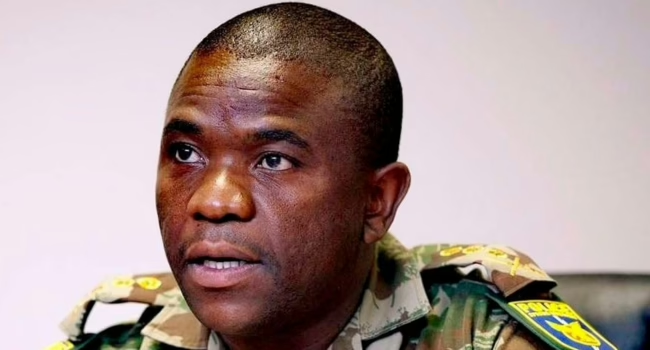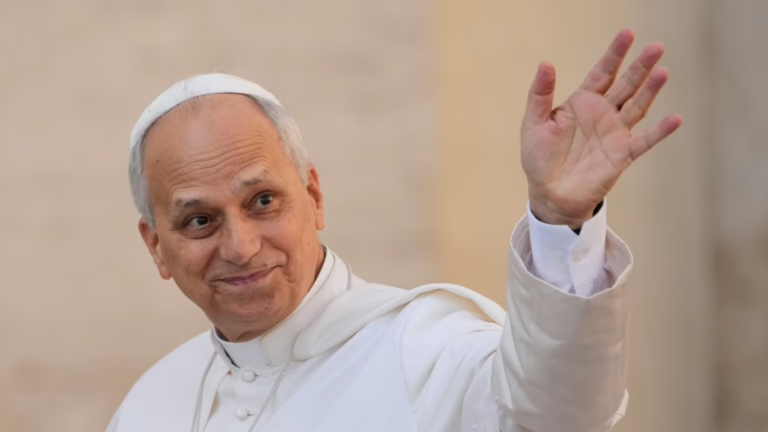Pope Leo XIV waves during his weekly general audience at St. Peter’s Square, Vatican, Oct. 1, 2025.
Gregorio Borgia/AP
hide caption
toggle caption
Gregorio Borgia/AP
VATICAN CITY – In a notable intervention on American political discourse, Pope Leo XIV emphasized that Catholic leaders should be evaluated on the entirety of their policy stances, highlighting concerns over the United States’ approach to immigration as “cruel and unjust.”
“A person who opposes abortion but supports capital punishment cannot truly be called pro-life,” the Pope remarked. “Similarly, those who oppose abortion yet condone the harsh treatment of immigrants in the U.S. raise serious questions about their commitment to the sanctity of life.”
This marks the first time the first American-born pontiff has publicly addressed the contentious debates surrounding abortion, immigration, and the Catholic Church’s influence in American public life since his election.
When questioned about these statements, White House Press Secretary Karoline Leavitt responded on Wednesday, firmly denying claims of inhumane treatment of undocumented immigrants under the current administration. “While we reject allegations of mistreatment today, it is undeniable that previous administrations witnessed severe abuses at the southern border, including trafficking, assaults, and even fatalities,” she stated.
Prior to his papacy, Cardinal Robert Prevost-now Pope Leo XIV-had expressed criticism of the Trump administration’s immigration policies through social media posts, reflecting his longstanding concern over the issue.
Papal remarks during a press encounter
The Pope’s succinct comments were made during an impromptu press gathering outside his summer residence in Castel Gandolfo on Tuesday evening.
Reporters inquired about the controversy surrounding Illinois Senator Dick Durbin, who was slated to receive a lifetime achievement award from a Catholic organization despite his pro-choice stance on abortion.
Though Pope Leo XIV admitted limited familiarity with the specifics, he acknowledged that the award recognized Durbin’s extensive congressional service spanning over four decades.
“I recognize the complexities and tensions involved,” the Pope said. “However, as I have previously expressed, it is essential to consider the full spectrum of Church teachings when evaluating such matters.”
He encouraged those engaged in U.S. and Illinois politics to maintain mutual respect, while reaffirming the Church’s clear position on these moral issues.
On September 22, Chicago Cardinal Blase Cupich announced his intention to present Durbin with the award at the upcoming Keep Hope Alive gala, honoring the senator’s advocacy for immigrant rights.
Nevertheless, the decision sparked backlash from figures like Bishop Thomas Paprocki of Springfield, Illinois, who opposes Durbin’s abortion stance and has withheld Communion from him since 2004.
Durbin, currently serving his fifth Senate term set to conclude in January 2027, has declared he will not seek re-election.
Following the Pope’s comments, Cardinal Cupich revealed that Durbin declined the award. “Though disappointed, I respect his choice,” Cupich said, emphasizing that the honor was meant to acknowledge Durbin’s steadfast support for immigrants, a cause of urgent importance today.
The cardinal also lamented the deepening political polarization in the U.S., which he believes leaves many Catholics feeling alienated. While Church doctrine discourages honoring politicians who endorse policies contrary to its teachings, Cupich noted that no public figure perfectly embodies Catholic social principles.
“Complete rejection is counterproductive as it stifles meaningful dialogue,” the cardinal concluded.






















